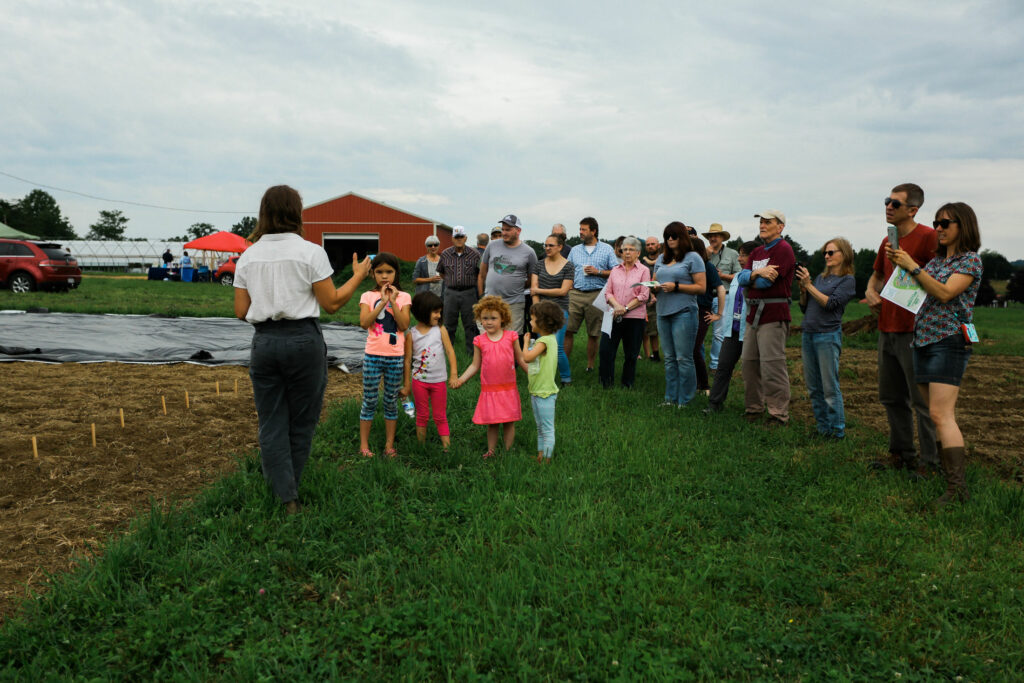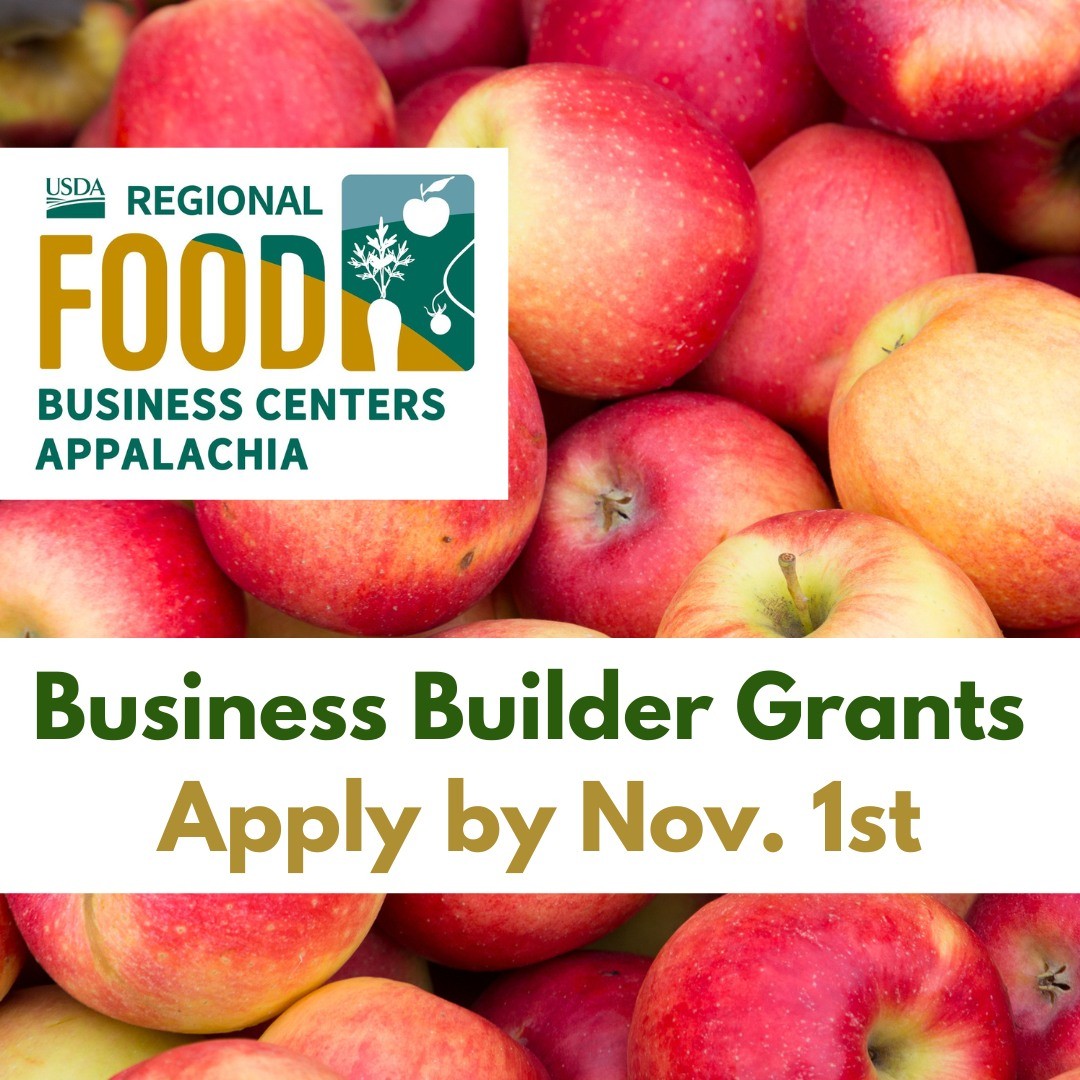When I spoke with Kathryn Eckman, the new food access coordinator at New Roots Community Farm in Fayette County, West Virginia, she was walking the New Roots land, preparing for another day’s work connecting students with the produce and practice of their local farmers.
For the past year and a half, Eckman has been helping to coordinate Fayette County’s Farm to School program, bringing food from local farms into school cafeterias, providing on-farm educational opportunities for students, and building school gardens. New Roots Community Farm, the leaseholder of West Virginia Agrarian Commons, has played a key role in bringing these programs to life.

“It’s a double whammy,” explained Eckman. “The students in our county experience really high levels of poverty. We’re funneling local food into the schools and fresh food into the schools for a lot of people that normally wouldn’t have had access to it, and we’re also providing money to local farmers.”
“Seven hundred frozen chickens is a sight to see,” said Eckman, sipping tea on a cool morning.
We’re funneling local food into the schools and fresh food into the schools for a lot of people that normally wouldn’t have had access to it.
This impressive troupe of petrified poultry was bound for cafeterias across Fayette County. For the past year and a half, every Wednesday has been West Virginia Wednesday. On these days, the ingredients for students’ meals, including the frozen chickens, are sourced directly from local farms, providing a major source of income for farmers and access to healthy, locally grown food to students. This dual benefit is a key feature of Farm to School programming in Fayette County.
As a food aggregator helping West Virginia food producers store and distribute their food, New Roots coordinates with farmers to draft farm plans, store produce, and effectively meet the needs of Fayette County’s hungry learners.
Yet getting local food on the table in school cafeterias is not always as simple as buying whatever food happens to be available at the local market. Careful planning is required to ensure that cafeterias have what they need on time, and that farmers are compensated for the produce they have grown for schools.
“We are only three minutes away from the Board of Education, so it’s super easy to go over there, talk to them about what produce the schools would use, and then we take that information, go to other aggregators like Turnrow or Crookes Brothers, and we give that information to them,” said Eckman. “And they go to the farmers that they have and they say, ‘Can you plant all of this? Can you plant a whole entire high tunnel dedicated to the schools for us? And we’ll buy it all.’”
Once the farmers harvest their produce, New Roots, along with other food aggregators including Turnrow Appalachian Farm Collective and Crook Brothers, are able to step in, store the produce and deliver it to local schools. This system has already proven highly effective: in the past year, Fayette County schools funneled $45,000 into locally grown produce for student meals.
In addition to serving as a go-between for local farms and school cafeterias, New Roots provides educational programming for Fayette County students.
“There’s a lot of different educational components,” said Eckman. “The biggest is farm field trips. We plan field trips out to the farm for pre-K through eighth grade students. On these field trips, there’s usually a farm tour, an “Agriculture in My Life” lesson about the food system and what effect it has on our lives, something that students might not know about. There’s also a local food taste test, and then usually there’s a seasonal farm activity. We had one last Friday, where we did a pumpkin roasting activity, because that’s what we had at the farm.”
Bringing locally grown produce to schools presents an important opportunity to teach students about healthy eating habits. Instead of adhering to outdated ideas of restrictive dieting that limit the intake of certain food groups or overall calories, Eckman and the Farm to School team encourage students to embrace a nutritionally diverse diet. Local farms, many of which have highly diversified operations, produce a variety of produce that many students have never tried before.
‘We do taste tests at four of the schools in the county where we take local food. We prepare it for them, and then we go to the school, and set up in the cafeteria with a booth. They can come by and try it and give us feedback,” said Eckman, “I come at it with this perspective of ‘food is meant to keep us healthy, and it’s going to help us learn and grow and play,’ instead of, ‘you need to not eat this.’”
Cultivating healthy eating habits means trying new things. Trying new things means developing the skills necessary to identify produce, shop on a budget, and patronize local businesses. With this in mind, the Farm to School program runs a mock farmers’ market for students to experience what it’s like shopping for local produce. While the money might be fake—students are given a budget, and each produce has a price—the vegetables are the real deal. For the past few markets, students have been sent home with one squash, two onions, a ball of garlic, three apples, and a bunch of kale.
The Farm to School program runs a mock farmers’ market for students to experience what it’s like shopping for local produce.
The Farm to School program has proven to be highly successful so far. Students gain the opportunity to experience how their food is grown, while farmers gain access to a new market for their produce. As a farm with a mission to serve the community, New Roots Community Farm has played a leading role in cultivating connections between schools and local farms. For Eckman, the impact of this work has the potential to extend far beyond the immediate term.
“I’m really excited to see, with this exposure to agricultural education, how hopefully, 15, 20 years from now, kids that participated in farm to school realize they had a passion for agriculture that they might not have had the chance to discover otherwise, and are inspired to become young, diverse farmers. Because we really need that: a more inclusive and diverse space that hasn’t really been present in our county before now.”
Read more about the Farm to School Program:
Farm to School program returns to Fayette County, bringing fresh produce to students and families – WOAY-TV
Fayette County Farm to School holds pop-up farmer’s market at New River Intermediate – WOAY-TV
Farm to School Month highlights importance of sourcing local food – WOAY-TV
Whole Foods awards farm-to-table funding for Fayette County Schools (wvnstv.com)




